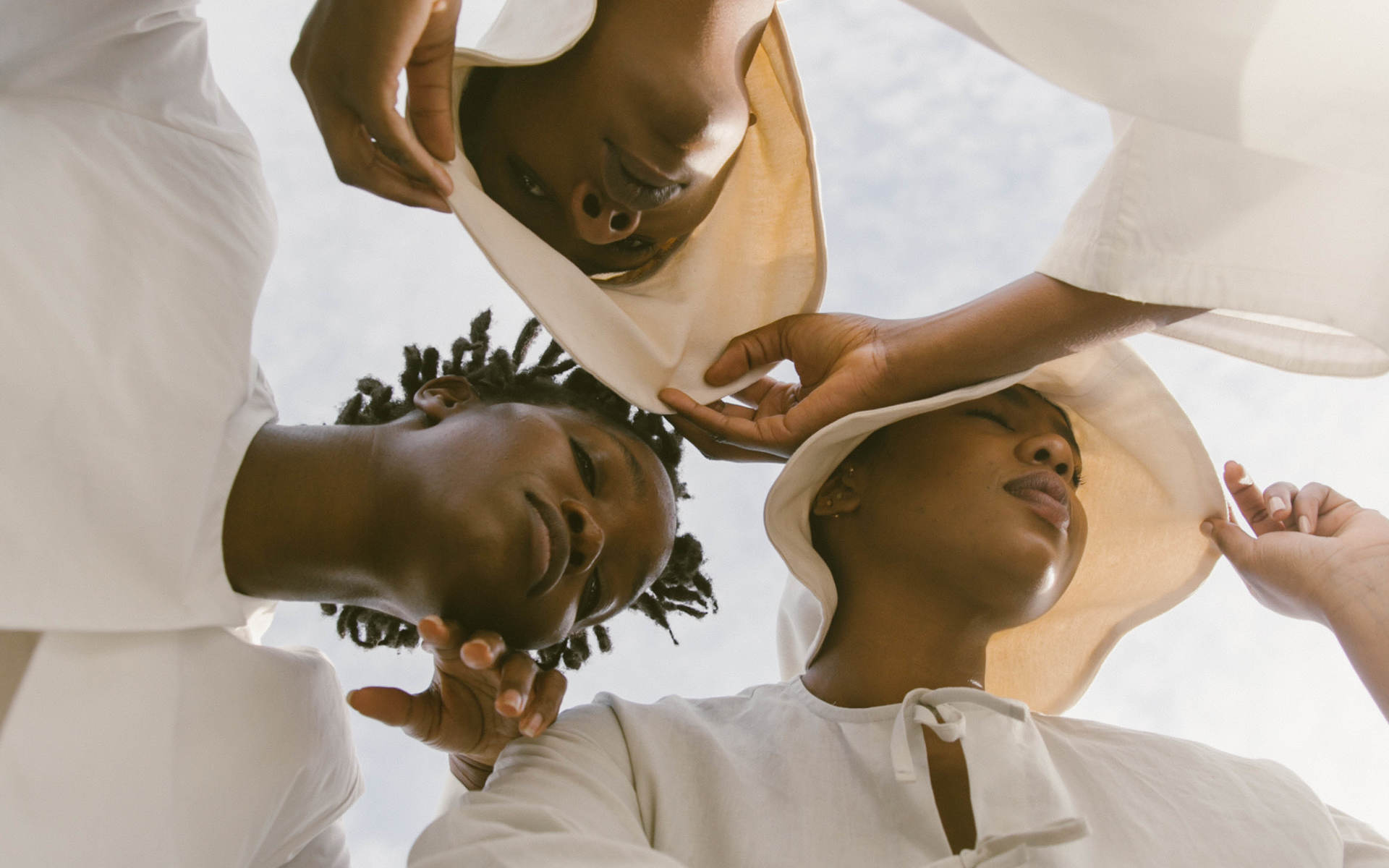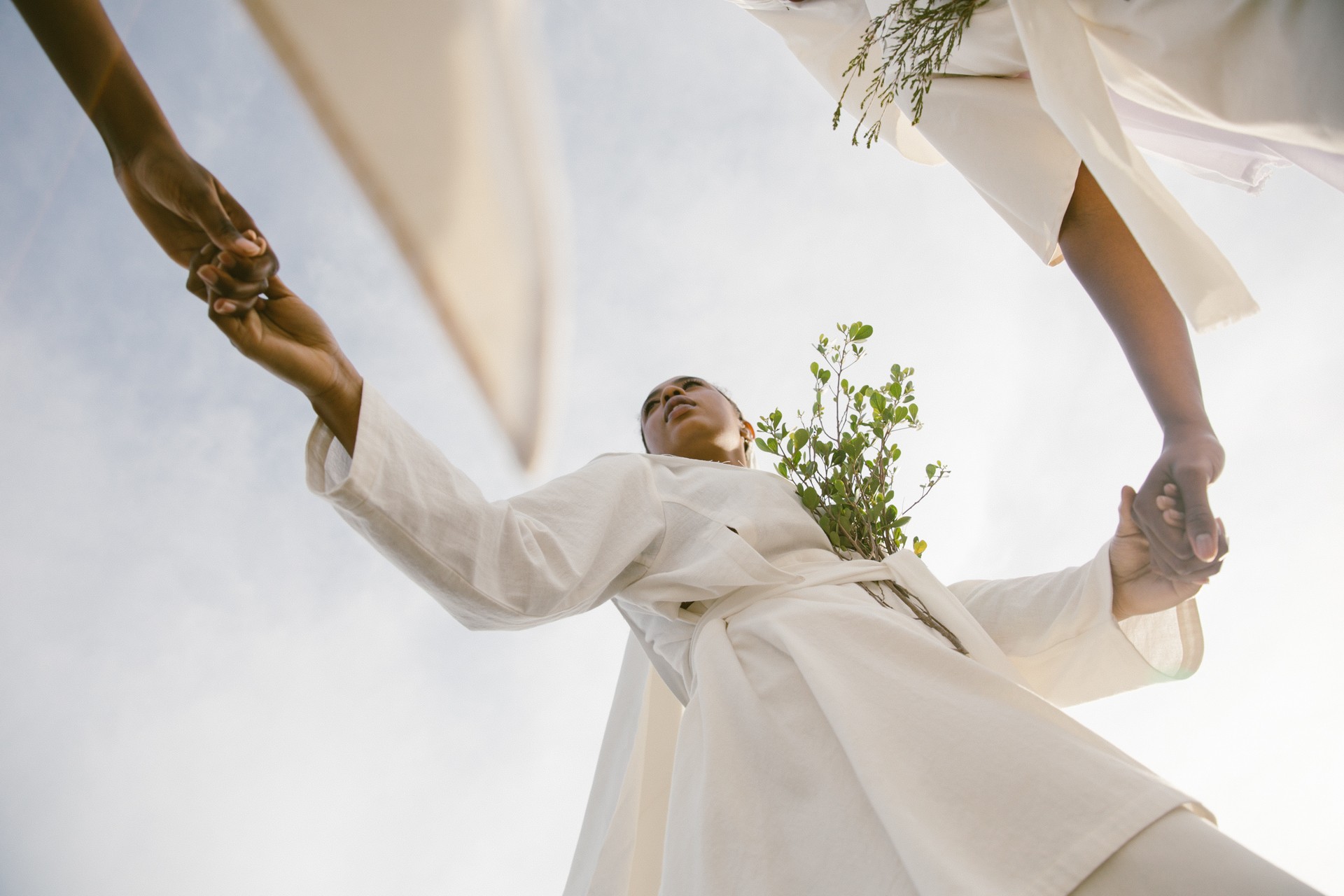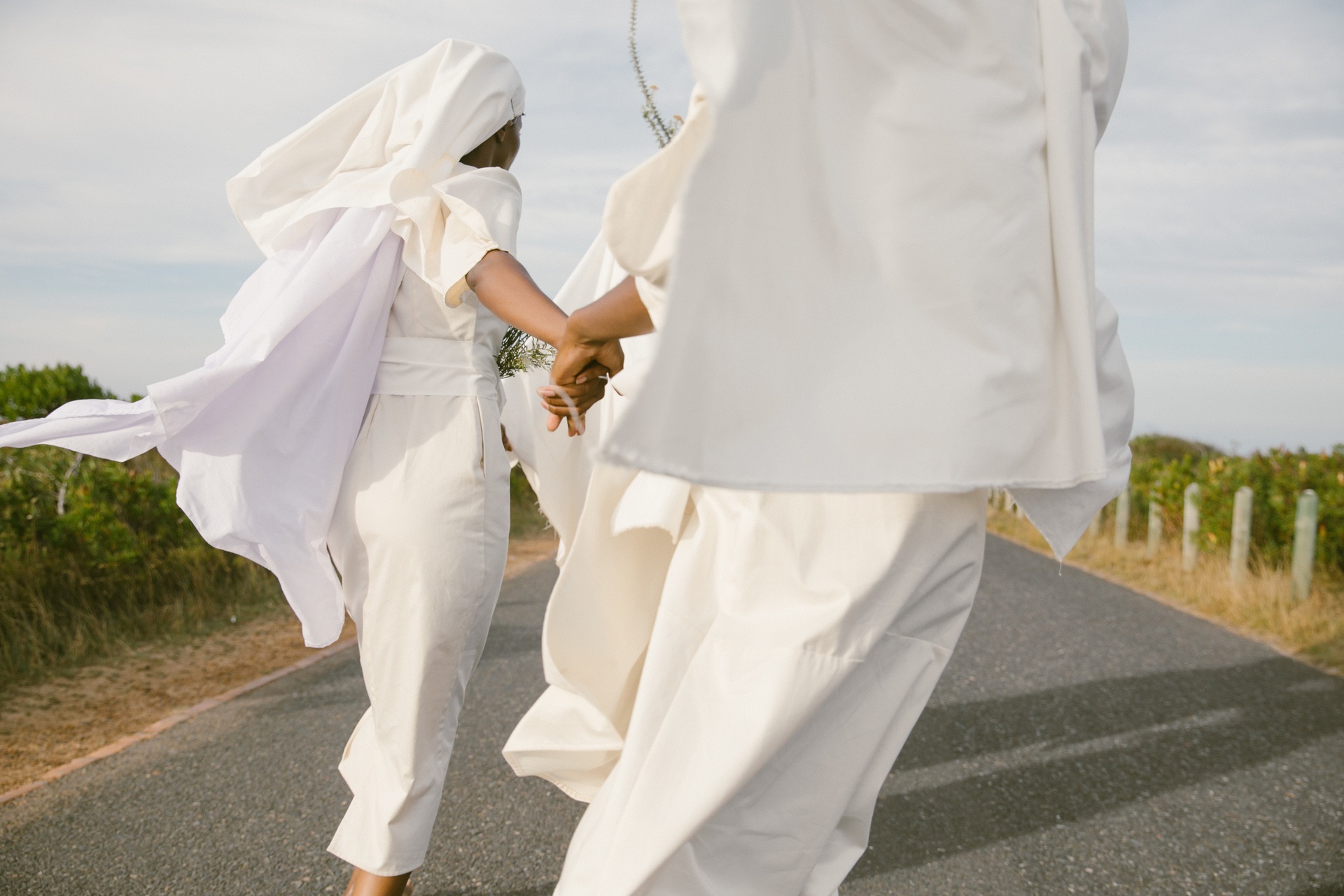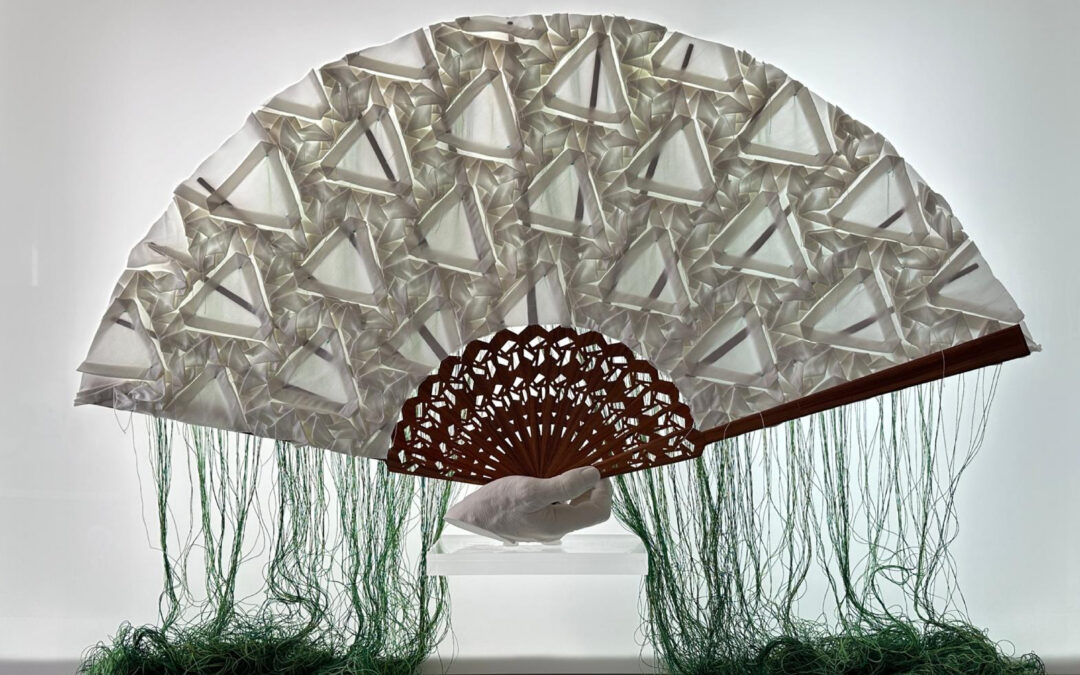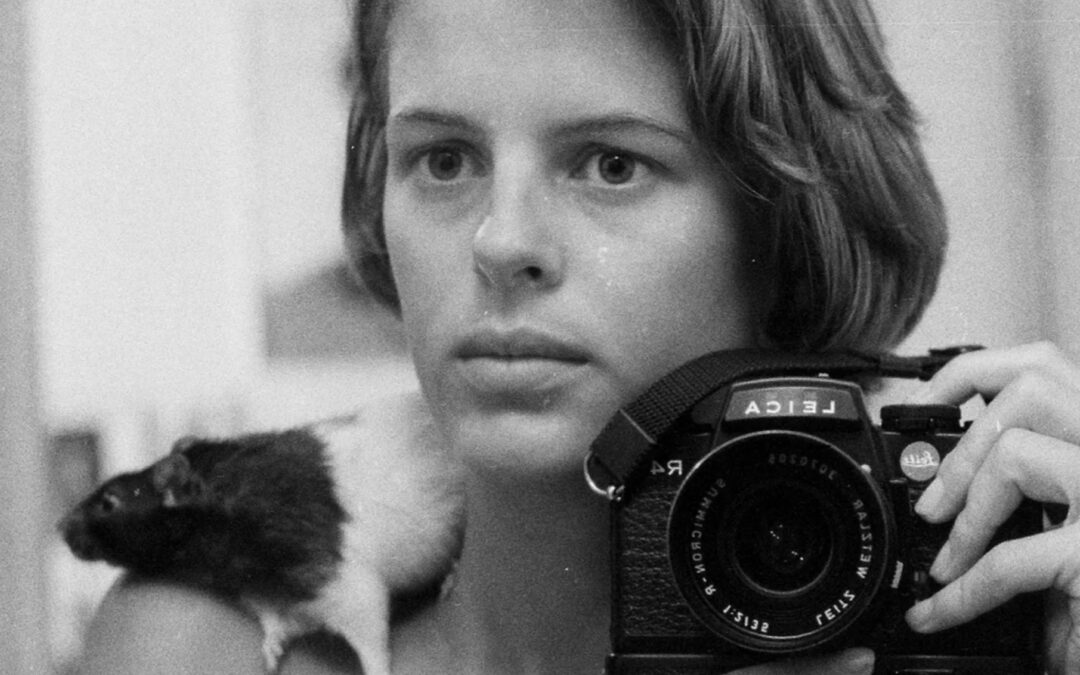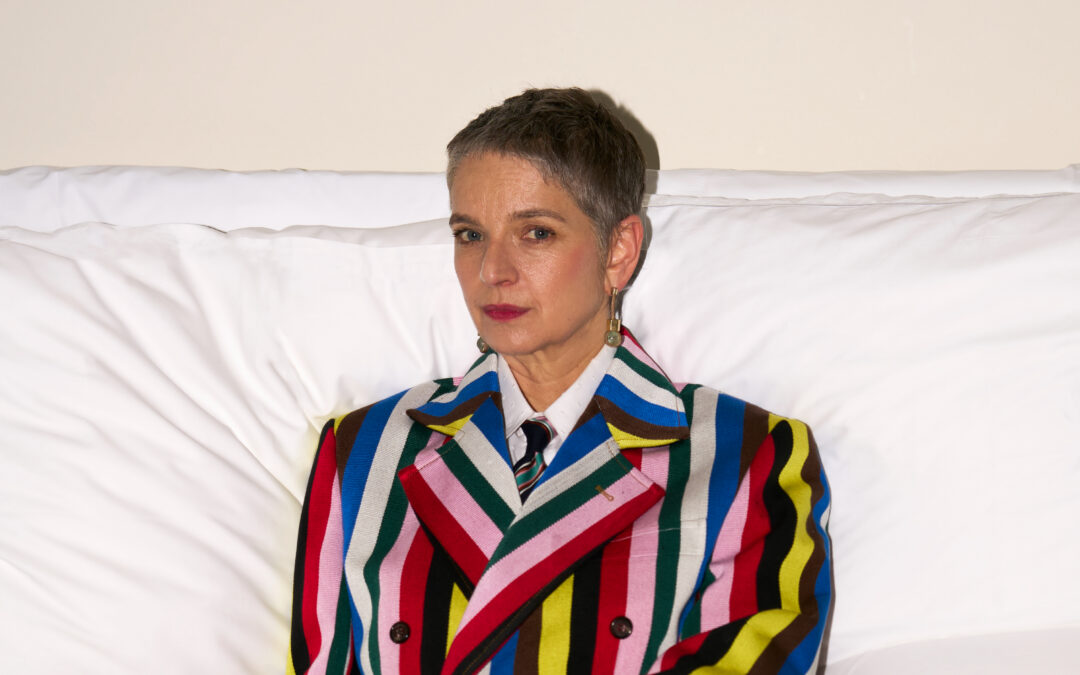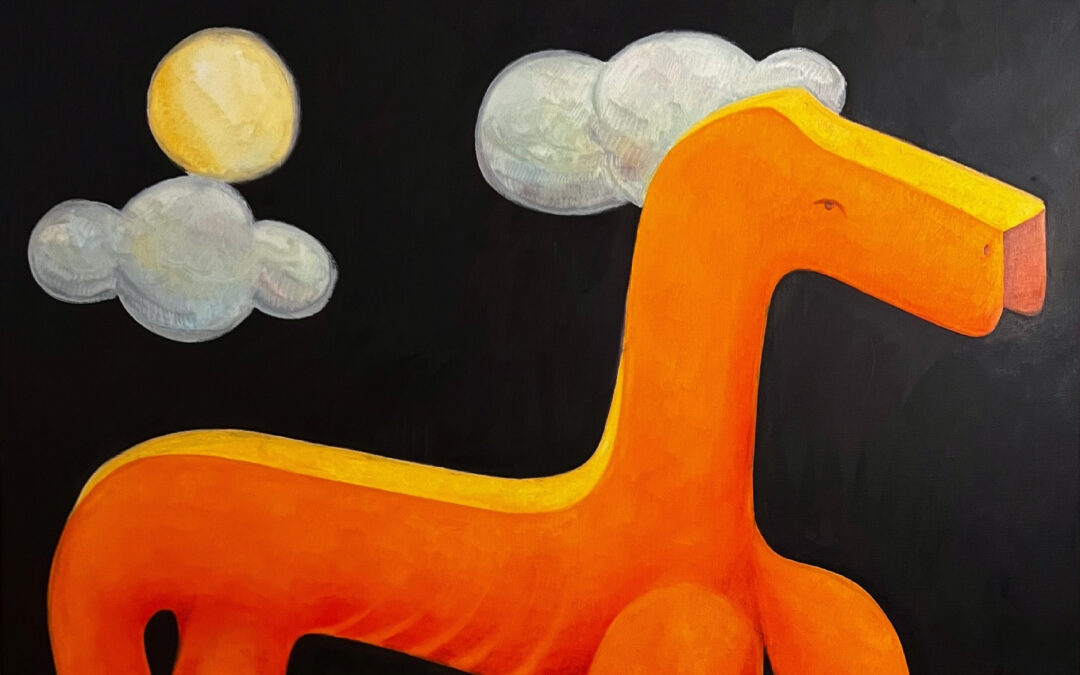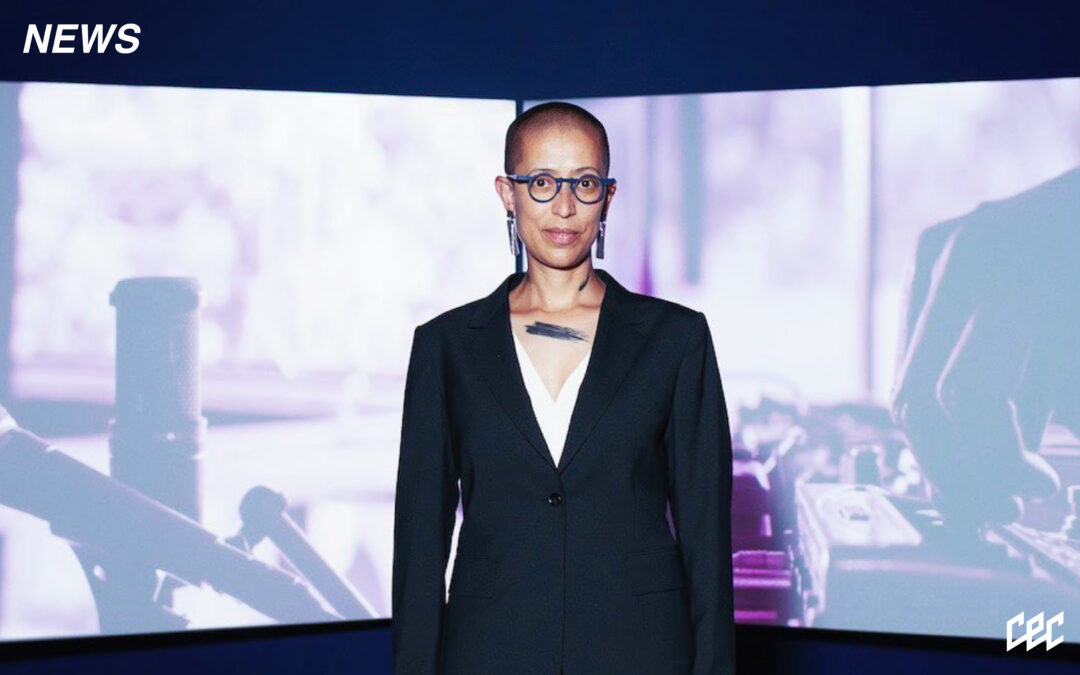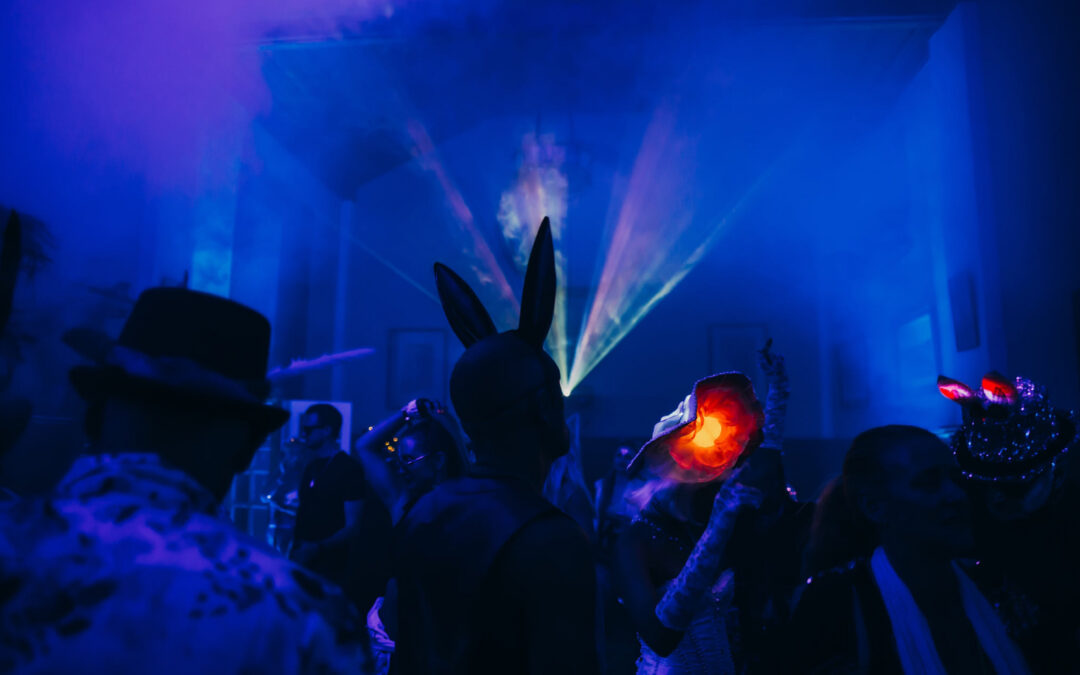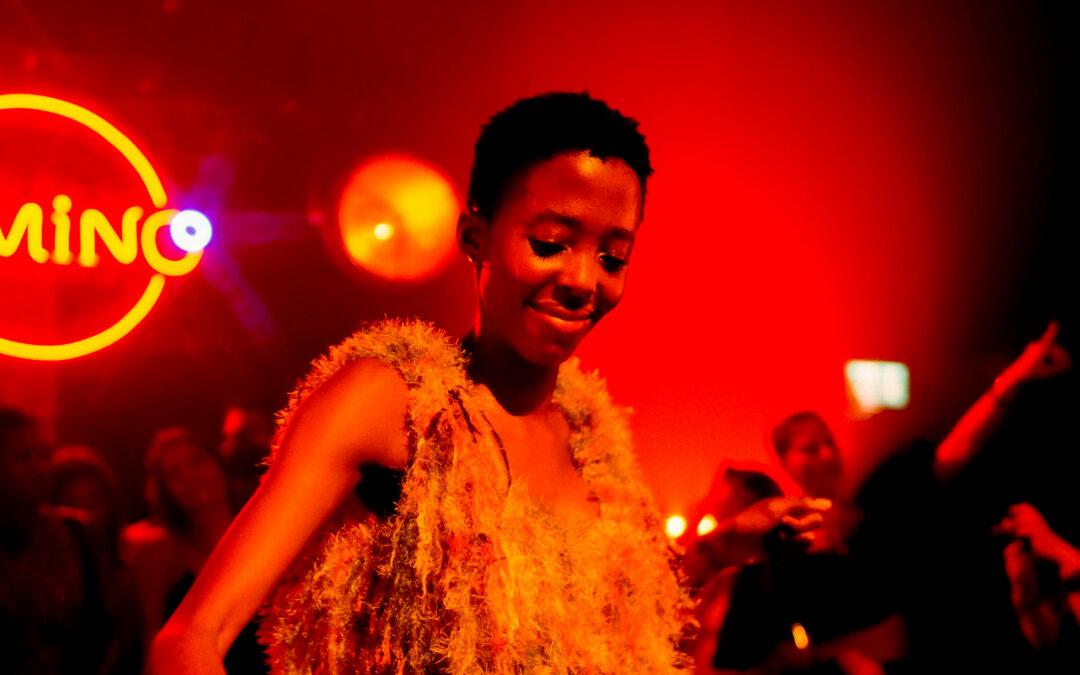This is a very special piece to write, in conversation with friend, sister and sartorial co-collaborator Duduza Mchunu. In 2021, we made this work at a time when the world was still, and we needed to move and create. We reached out to Cris Fragkou, and spent a day on the Ou Kaapse Weg mountain bringing the vision together of Duduza’s spiritual heritage. We cannot thank Cris enough for the effortless resonance of her way of working, and capturing this work in the most beautiful way. We also want to thank Luke Radloff and UNIFORM, and Celeste Arendse and SELFI, for lending us the most exceptional pieces to bring this to life; we believe they are two of the most important designers in building the design language of South Africa.
The three of us hope that in the decades to come, the spiritual power of fashion will come to be known more and more; fashion is identity, fashion is heritage, fashion is culture, fashion is consciousness.
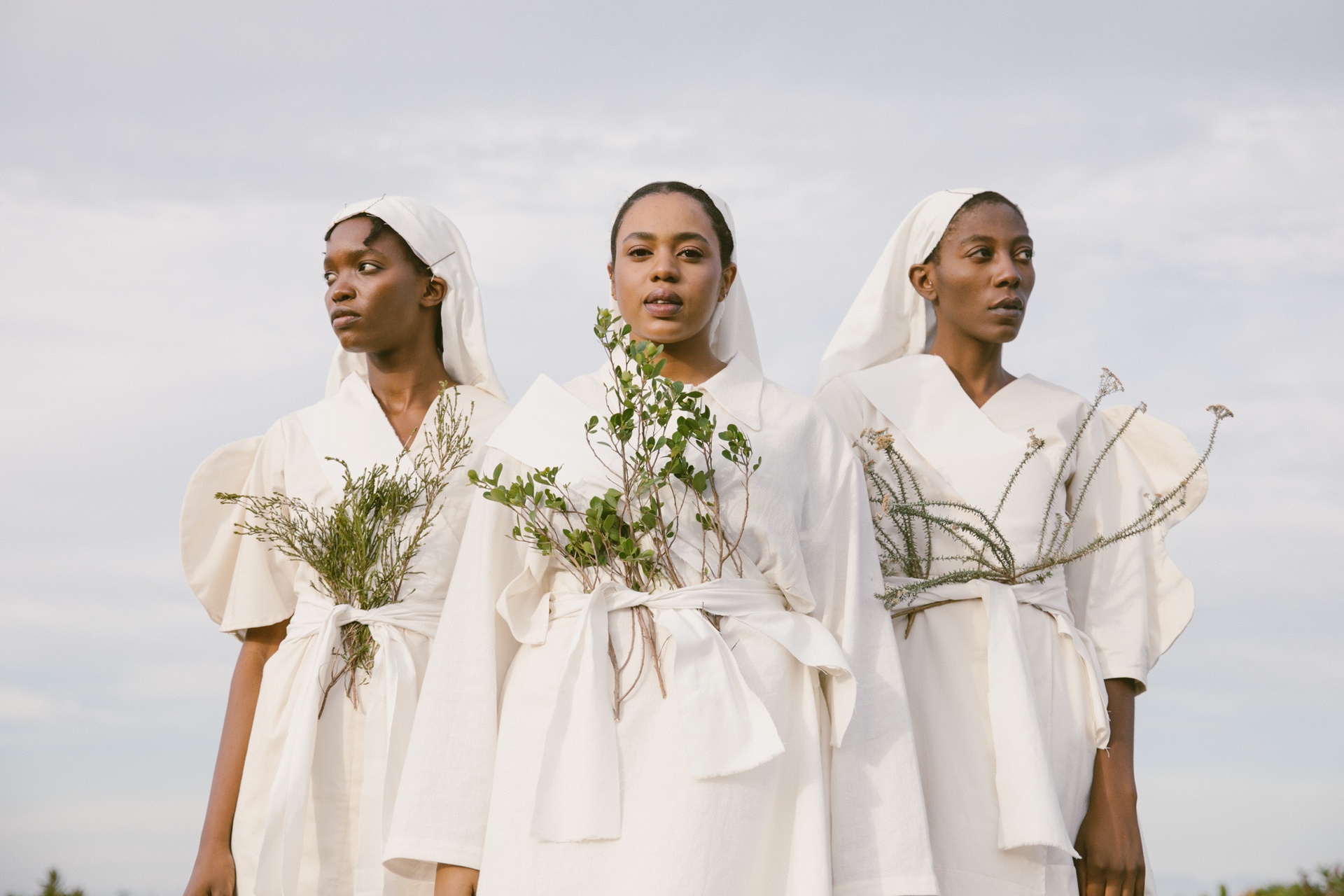
Spiritual practices are deeply woven into the fabric of life throughout the continent of Africa. Honing in on creative director Duduza Mchunu’s lineage, we witness an ode to the women of the AmaZayoni church; in which the attire is punctuated by crisp white fabrics, layered in specific iterations as garments of protection. Duduza explains her connection to the AmaZayoni church, “it all connects back to the women in my family. Specifically my grandmother, Gogo – without her, I don’t think I would have any sense of the spiritual relationship that I have with myself and life. She was a spiritual healer and prayer woman, and this all happened within the AmaZayoni church, where she had undergone her initiation. Growing up, my mother would take me to Durban to see Gogo, and to the church. My mom would then go onto have own calling and undergo initiation, so the church has always been a constant thread throughout my life towards God, the Universe and spiritual practices. My grandmother was an Arch-Bishop of the church at one point, so it is an intimate experience of how I’ve experienced home.” When colonial missionaries brought Christianity to the continent, their plan for it was to subsume the varying and innate indigenous spiritual practices of people across Africa, but Duduza explains that rather, a fusion took place, “within AmaZayoni, there is no division between using the spiritual teaching or framework of Christianity, with our own practices. I think of how the drum, songs and dancing is critical in the church – which are used to support people in heightened states of awareness, so that Spirit can come and take over, working through them and healing them – relaying messages from the different realms. With AmaZayoni, and in my own initiation, we connect with ‘ingilozi’ in Zulu, which is an angel – beings that have never been human before, that are pure energy and spiritual entities. With more of a traditional aspect of religion, it might be more ancestral practices.”
We tend to think of uniformity as linear, and the reductionist view is that similarities in dress codes challenge individual expression. In deconstructing the essence of the uniform, as a dialogue of community, these images express a common and sacred bond between the wearers. It demonstrates the power of aligning with others in the pursuit of a shared practice; and in this context, it is the cultivation of spiritual connection and insight; as Duduza says, “I wanted to show that uniformity in this context is a very powerful way of showing many as ‘one’ – so we find in the sartorial tradition of the church, a sense of community and connectedness. It was really important to bring nature, so we use indigenous plants to adorn the models, and to reference the way that women in the church are of the earth, and how they would incorporate things from the natural world into their practice.” Using the landscape of indigenous flora in the mountains of Cape Town as the backdrop, photographer Christina Fragkou captured the strength laden within the outer and inner world of uniformity, with the clean layering accessorised with plants convey the intrinsic connection of women to the earth; as an expression of Nature herself.
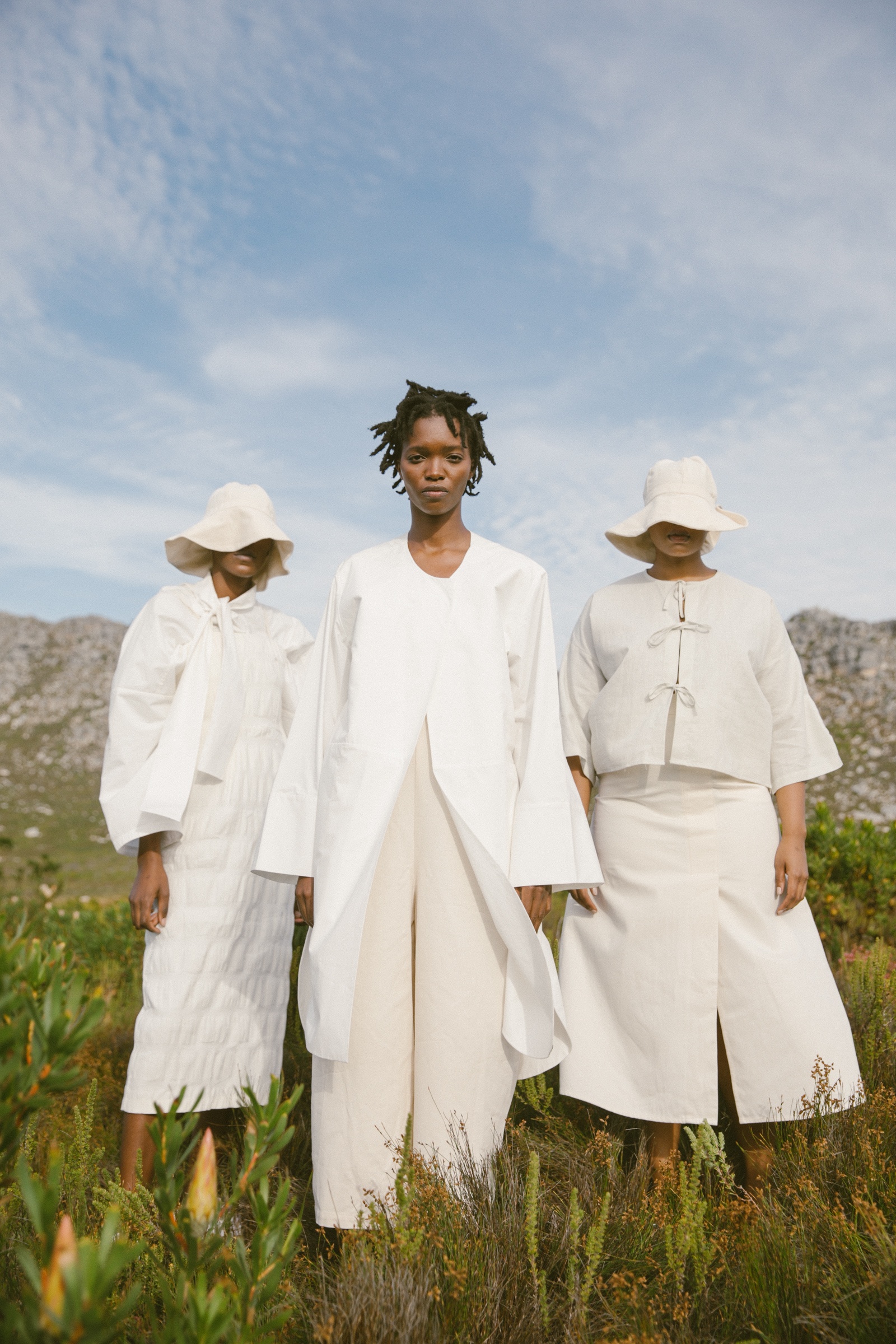
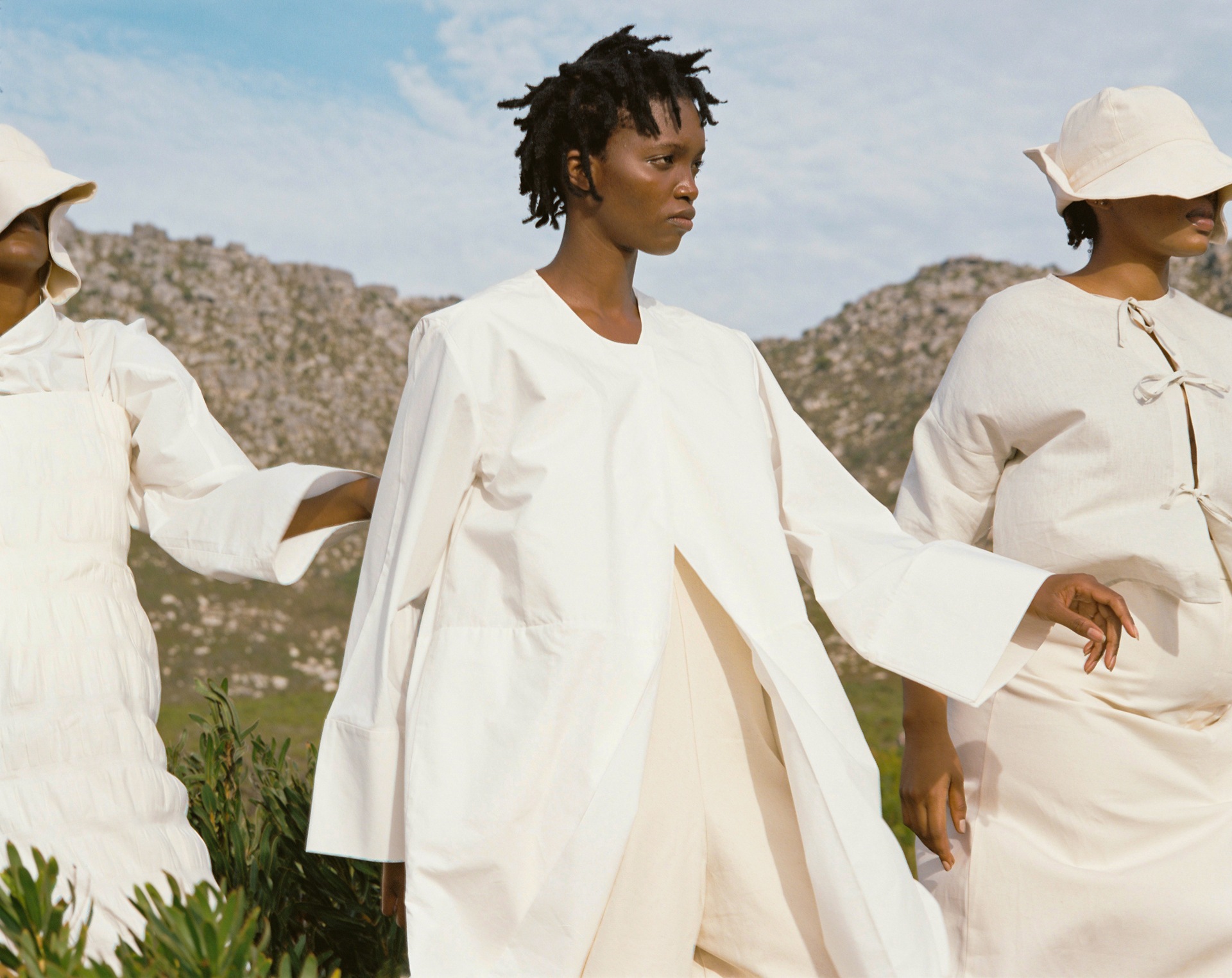
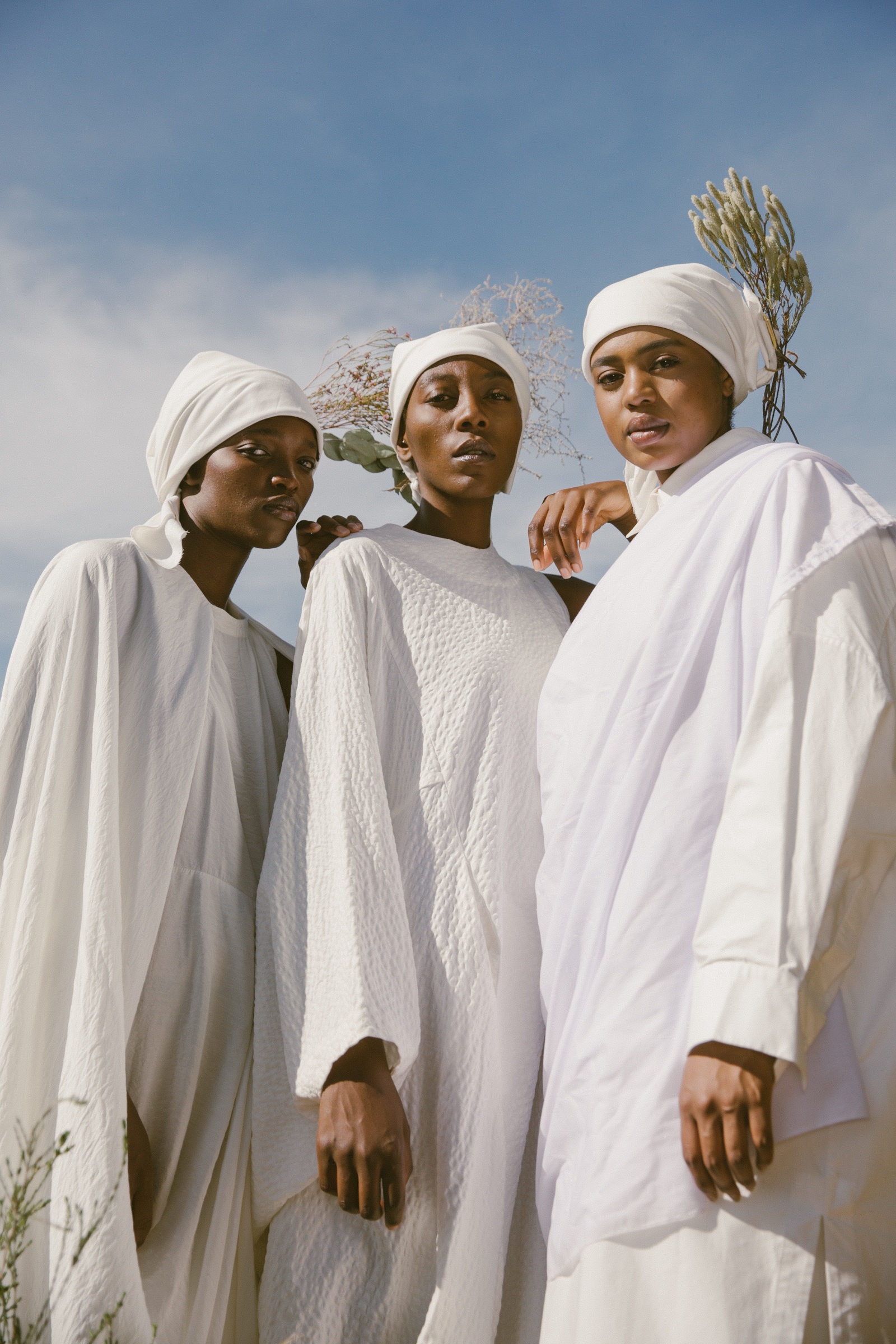
Using garments from prolific South African labels, UNI FORM and Selfi, artistic duo UBNYEHT (Duduza Mchunu and Holly Beaton) sought to pay homage to the liberating nature of dress practices among women, with these acts conveying a demarcation of alignment under the notion of sartorial consciousness; in which fashion lends itself as physical act of uniting under the same values and motivations. Within the AmaZayoni sartorial tradition, Duduza explains the spiritual functions of how the attire is worn, “everything is put together very intentionally – from the fabric belt across the shoulder, to the way these women who wake up at 6am to iron and starch their fabric down to the tee, engaging in a meditation and ceremony before they even arrive at church; this deep preparation to commune with Spirit, and so these garments are critical to being able to enter a holy space to meet God. The headwraps, and placement, contain their energy in order to do this. When we were putting this editorial together, I knew we had to have these incredibly strong, clean looks that paid respect to the elements of how they dress, but in a way that spoke to the modernity and transience of African fashion Of course, they had to be barefoot – I always say that there’s nothing more chic than a bare-foot. Using the colour white with the two different looks, showcase the church’s affinity for colour theory. We use colour in varying ways and for different purposes, but white is the purest for the purposes of spiritual interaction.”
This editorial perfectly describes Duduza’s vision as fashion creator, finding her visual language centred precisely at the intersection of contemporary African expression and living, with the preservation and celebration of ancient, indigenous traditions. For the styling, Duduza and I sought the work of Celeste Arendse’s Selfi, and Luke Radloff’s UNI FORM to articulate this intersection between minimalism, modernity, and the richness and flow of spiritual dressing. Selfi is noted for their use of biodegradable, rayon weighted fabrics; adding a sense of proportion and depth, while UNI FORM’s cascading dresses and crisp shirts create silhouettes in line with purification; both labels coming together as celebrations of the uniform.
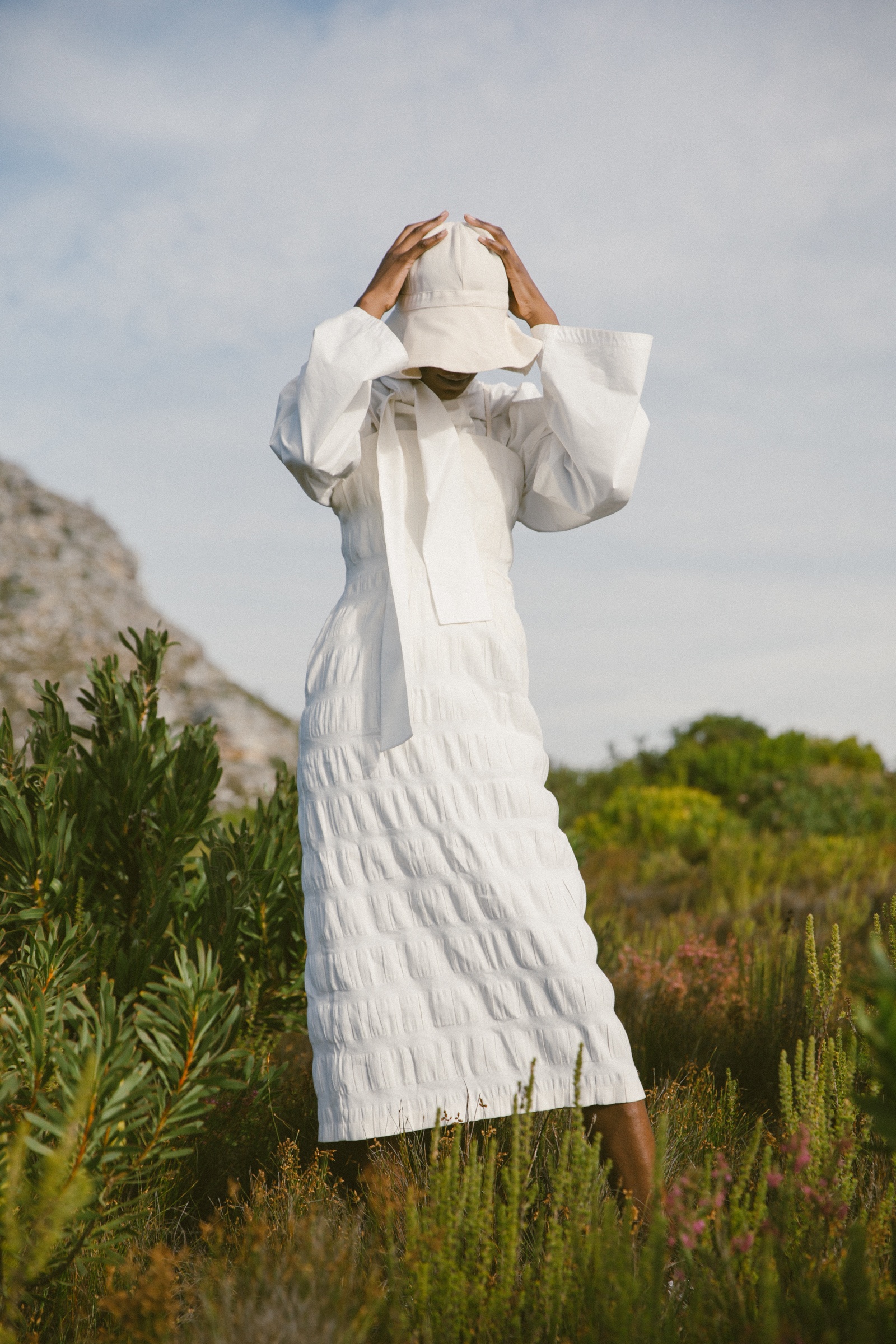
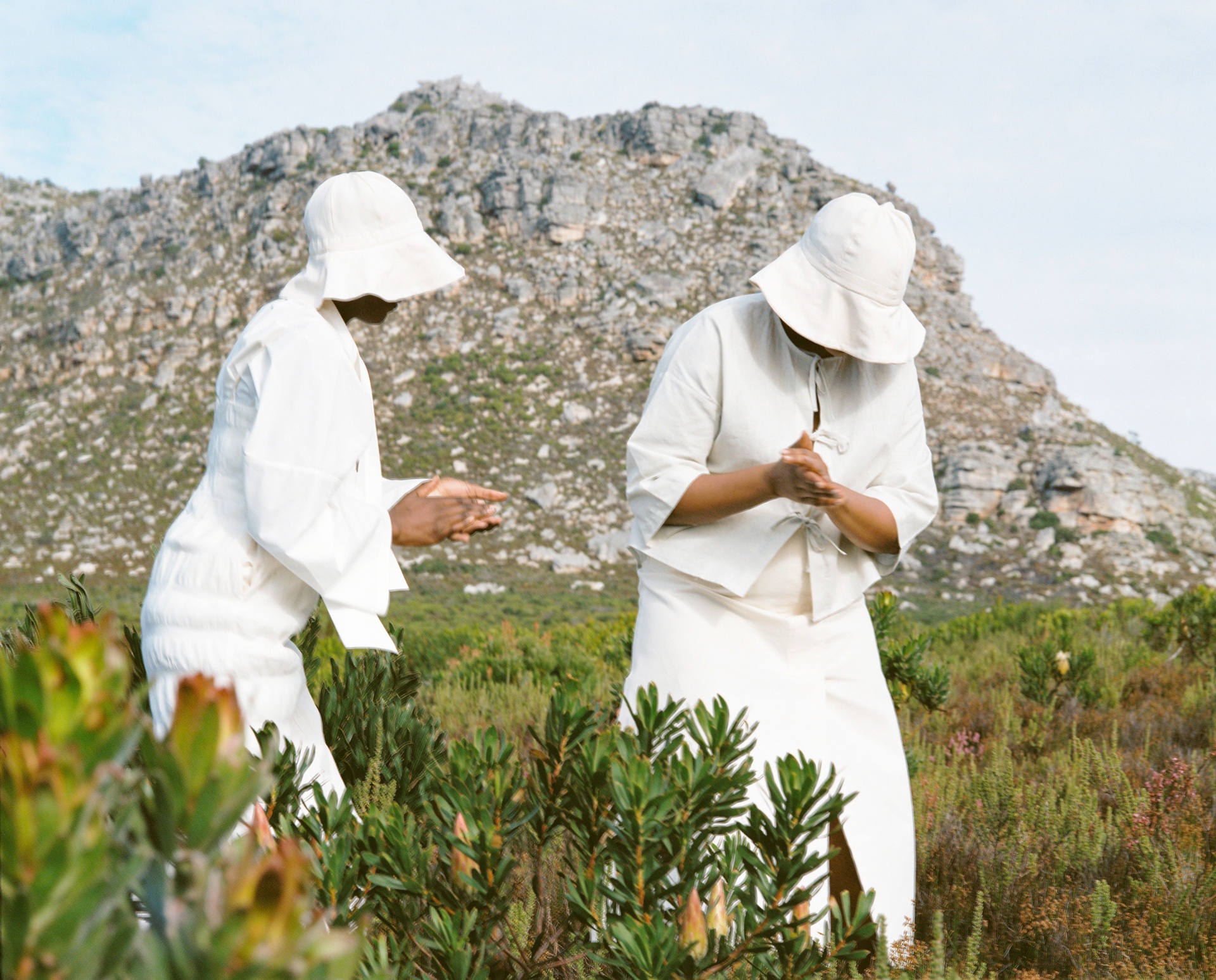
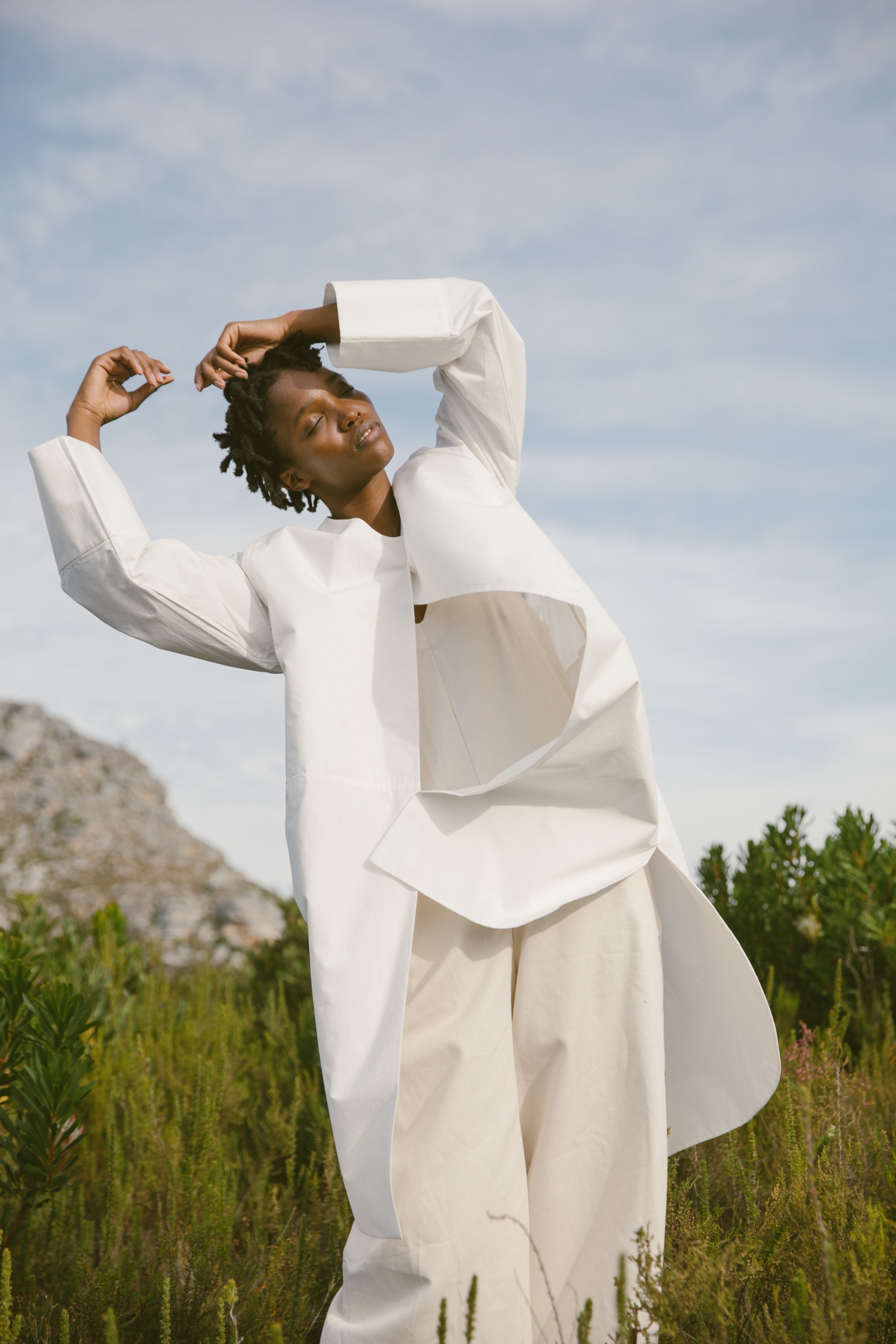
Written by: Holly Beaton

